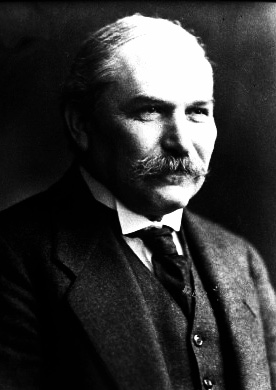|
Michèle Tertilt
Michèle Tertilt (born 1972 in Münster) is a German professor of economics at the University of Mannheim. Before, Tertilt was an assistant professor at Stanford University. She also spent a year at the University of Pennsylvania and one year as a research fellow at the Hoover Institution. In 2017 she received the Yrjö Jahnsson Award – a biennial award by the European Economic Association and the Yrjö Jahnsson Foundation to a European economist no older than 45 years, who has made a contribution in theoretical and applied research that is significant to economics in Europe. In September 2013 she was awarded the Gossen Prize – an annual award by the Verein für Socialpolitik which recognizes the best published economist under 45 working in the German-speaking area. Tertilt is the first woman to win this prestigious German prize in economics. In 2019, she was awarded the Gottfried Wilhelm Leibniz Prize by the Deutsche Forschungsgemeinschaft. Her main focus is around devel ... [...More Info...] [...Related Items...] OR: [Wikipedia] [Google] [Baidu] |
University Of Mannheim
The University of Mannheim (German: ''Universität Mannheim''), abbreviated UMA, is a public university, public research university in Mannheim, Baden-Württemberg, Germany. Founded in 1967, the university has its origins in the ''Palatine Academy of Sciences'', which was established by Charles Theodore, Elector of Bavaria, Elector Carl Theodor at Mannheim Palace in 1763, as well as the ''Handelshochschule'' (Commercial College Mannheim), which was founded in 1907. The university offers Undergraduate education, undergraduate, Master's degree, graduate and Doctorate, doctoral programs in business administration, economics, law, social sciences, humanities, mathematics, computer science and information systems. The university's campus is located in the city center of Mannheim and its main campus is in the Mannheim Palace. In the academic year 2020/2021 the university had 11,640 full-time students, 1600 academic staff, with 194 professors, and a total income of around €121 mill ... [...More Info...] [...Related Items...] OR: [Wikipedia] [Google] [Baidu] |
Quarterly Journal Of Economics
''The Quarterly Journal of Economics'' is a peer-reviewed academic journal published by the Oxford University Press for the Harvard University Department of Economics. Its current editors-in-chief are Robert J. Barro, Lawrence F. Katz, Nathan Nunn, Andrei Shleifer, and Stefanie Stantcheva. History It is the oldest professional journal of economics in the English language, and second-oldest in any language after the . It covers all aspects of the field—from the journal's traditional emphasis on micro-theory to both empirical and theoretical macroeconomics. Reception According to the ''Journal Citation Reports'', the journal has a 2015 impact factor of 6.662, ranking it first out of 347 journals in the category "Economics". It is generally regarded as one of the top 5 journals in economics, together with the '' American Economic Review'', ''Econometrica'', the '' Journal of Political Economy'', and '' The Review of Economic Studies''. Notable papers Some of the most inf ... [...More Info...] [...Related Items...] OR: [Wikipedia] [Google] [Baidu] |
Studienstiftung
The German Academic Scholarship Foundation (German: , or ''Studienstiftung'' for short) is Germany's largest and most prestigious scholarship foundation. According to its statutes, it supports "the university education of young people who, on account of their exceptional academic or artistic talents and their personalities, can be expected to make an outstanding contribution to society as a whole". The ''Studienstiftung'' is non-political, non-denominational and ideologically independent. Its headquarters are located in Bonn; it also has an office in Berlin. The current president is University of Bonn director , and its patron (') is the President of Germany, Frank-Walter Steinmeier. The ''Studienstiftung,'' like 12 other scholarship foundations (), is funded by the German Federal Ministry of Education and Research, with funds from the federal government, the German federal states and local authorities, numerous foundations and businesses as well as numerous private donors. In 2 ... [...More Info...] [...Related Items...] OR: [Wikipedia] [Google] [Baidu] |
Social Science Research Council
The Social Science Research Council (SSRC) is a US-based, independent, international nonprofit organization dedicated to advancing research in the social sciences and related disciplines. Established in Manhattan in 1923, it maintains a headquarters in Brooklyn Heights with a staff of approximately 70. The SSRC offers several Scholarship, fellowships to researchers in the social sciences and related disciplines, including for international fieldwork. __TOC__ History Early history The SSRC came into being in 1923 as a result of the initiative of the American Political Science Association's committee on research, headed by the association's president, Charles E. Merriam (1874–1953), who was chair of the political science department at the University of Chicago and an early champion of behaviorally-oriented social science. Representatives of the American Economic Association, the American Sociological Society, and the American Statistical Association joined with Merriam and hi ... [...More Info...] [...Related Items...] OR: [Wikipedia] [Google] [Baidu] |
Bavarian Academy Of Sciences
The Bavarian Academy of Sciences and Humanities () is an independent public institution, located in Munich. It appoints scholars whose research has contributed considerably to the increase of knowledge within their subject. The general goal of the academy is the promotion of interdisciplinary encounters and contacts and the cooperation of representatives of different subjects. History On 12 October 1758 the lawyer Johann Georg von Lori (1723–1787), Privy Counsellor at the College of Coinage and Mining in Munich, founded the ''Bayerische Gelehrte Gesellschaft'' (Learned Society of Bavaria). This led to the foundation by Maximilian III Joseph, Elector of Bavaria, of the Bavarian Academy of Sciences and Humanities on 28 March 1759. Count Sigmund von Haimhausen was the first president. The Academy's foundation charter specifically mentions the Parnassus Boicus, an earlier learned society. Originally, the Academy consisted of two divisions, the Class for History (''Historische ... [...More Info...] [...Related Items...] OR: [Wikipedia] [Google] [Baidu] |
Econometric Society
The Econometric Society is an international society of academic economists interested in applying statistical tools in the practice of econometrics. It is an independent organization with no connections to societies of professional mathematicians or statisticians. It was founded on December 29, 1930, at the Statler Hotel in Cleveland, Ohio. Its first president was Irving Fisher. As of 2014, there are about 700 elected fellows of the Econometric Society, making it one of the most prevalent research affiliations. New fellows are elected each year by the current fellows. The sixteen founding members were Ragnar Frisch, Charles F. Roos, Joseph A. Schumpeter, Harold Hotelling, Henry Schultz, Karl Menger, Edwin B. Wilson, Frederick C. Mills, William F. Ogburn, J. Harvey Rogers, Malcolm C. Rorty, Carl Snyder, Walter A. Shewhart, Øystein Ore, Ingvar Wedervang and Norbert Wiener. The Econometric Society sponsors the economics academic journal ''Econometrica ''Econometrica ... [...More Info...] [...Related Items...] OR: [Wikipedia] [Google] [Baidu] |
Birgit Grodal Award
Birgit Grodal (24 June 1943 - 4 May 2004), was an economics professor at the University of Copenhagen from 1968 until her death in 2004. Early life Birgit Grodal was born on 24 June 1943 in Copenhagen, Denmark. She grew up in Frederiksberg. She was the middle child having both a younger and an older brother. Grodal was interested in mathematics from a young age and used to fill the pages of her psalm book with equations. She was married to Torben Grodal. Education Grodal gained her degree (1962) and her masters (1968) in mathematics and physics from the University of Copenhagen. Also at the University of Copenhagen she earned her Ph.D. in mathematics under Werner Fenchel, her dissertation, ''A critical overview of the present theory on atomless economies'', won a gold medal, something which was used to support young scholars in the old Danish academic system. Research Birgit Grodal worked on micro-economic theory, mathematical economics, and general equilibrium theory. ... [...More Info...] [...Related Items...] OR: [Wikipedia] [Google] [Baidu] |
Fertility
Fertility in colloquial terms refers the ability to have offspring. In demographic contexts, fertility refers to the actual production of offspring, rather than the physical capability to reproduce, which is termed fecundity. The fertility rate is the average number of children born during an individual's lifetime. In medicine, fertility refers to the ability to have children, and infertility refers to difficulty in reproducing naturally. In general, infertility or subfertility in humans is defined as not being able to conceive a child after one year (or longer) of unprotected sex. The antithesis of ''fertility'' is infertility, while the antithesis of ''fecundity'' is sterility. Demography In demographic contexts, fertility refers to the actual production of offspring, rather than the physical capability to produce which is termed fecundity. While fertility can be measured, fecundity cannot be. Demographers measure the fertility rate in a variety of ways, which can be broa ... [...More Info...] [...Related Items...] OR: [Wikipedia] [Google] [Baidu] |
Human Development (humanity)
Development theory is a collection of theories about how desirable change in society is best achieved. Such theories draw on a variety of social science disciplines and approaches. In this article, multiple theories are discussed, as are recent developments with regard to these theories. Depending on which theory that is being looked at, there are different explanations to the process of development and their inequalities. Modernization theory Modernization theory is used to analyze the processes in which modernization in societies take place. The theory looks at which aspects of countries are beneficial and which constitute obstacles for economic development. The idea is that development assistance targeted at those particular aspects can lead to modernization of 'traditional' or 'backward' societies. Scientists from various research disciplines have contributed to modernization theory. Sociological and anthropological modernization theory The earliest principles of moder ... [...More Info...] [...Related Items...] OR: [Wikipedia] [Google] [Baidu] |
Macroeconomics
Macroeconomics is a branch of economics that deals with the performance, structure, behavior, and decision-making of an economy as a whole. This includes regional, national, and global economies. Macroeconomists study topics such as output (economics), output/Gross domestic product, GDP (gross domestic product) and national income, unemployment (including Unemployment#Measurement, unemployment rates), price index, price indices and inflation, Consumption (economics), consumption, saving, investment (macroeconomics), investment, Energy economics, energy, international trade, and international finance. Macroeconomics and microeconomics are the two most general fields in economics. The focus of macroeconomics is often on a country (or larger entities like the whole world) and how its markets interact to produce large-scale phenomena that economists refer to as aggregate variables. In microeconomics the focus of analysis is often a single market, such as whether changes in supply or ... [...More Info...] [...Related Items...] OR: [Wikipedia] [Google] [Baidu] |
Family Economics
Family economics applies economic concepts such as production, division of labor, distribution of wealth, distribution, and decision making to the family. It is used to explain outcomes unique to family—such as marriage, the decision to have children, fertility, time devoted to domestic production, and dowry payments using economic analysis. The family, although recognized as fundamental from Adam Smith onward, received little systematic treatment in economics before the 1960s. Important exceptions are Thomas Robert Malthus#Population growth, Thomas Robert Malthus' model of population growthThomas Robert Malthus, 1798. ''An Essay on the Principle of Population''. s:An Essay on the Principle of Population, Full text on WikiSource. and Friedrich Engels'Friedrich Engels, 1981, The Origin of the Family, Private Property and State, International Publishers, pp 94-146 pioneering work on the structure of family, the latter being often mentioned in Marxian economics, Marxist and ... [...More Info...] [...Related Items...] OR: [Wikipedia] [Google] [Baidu] |

